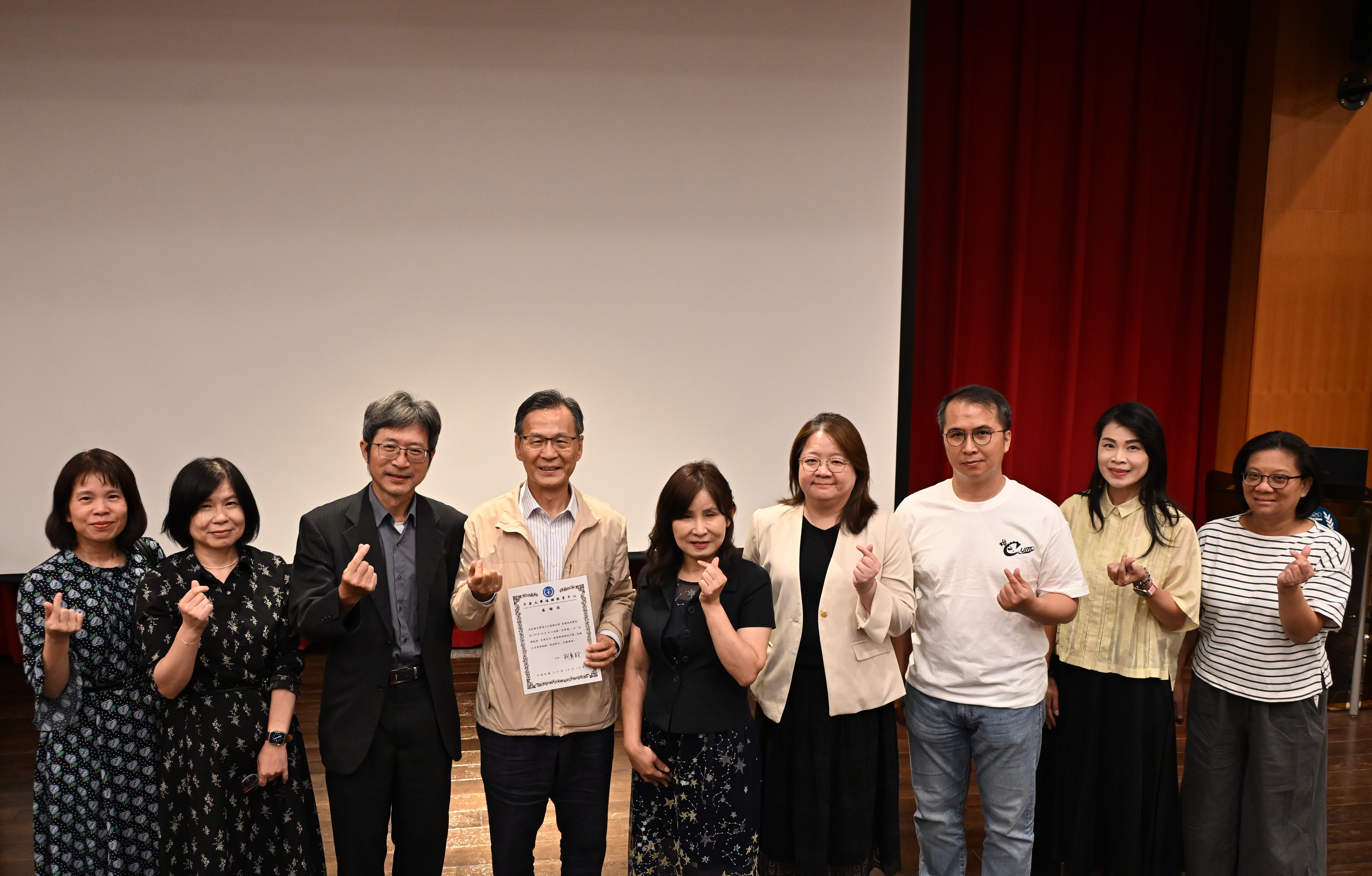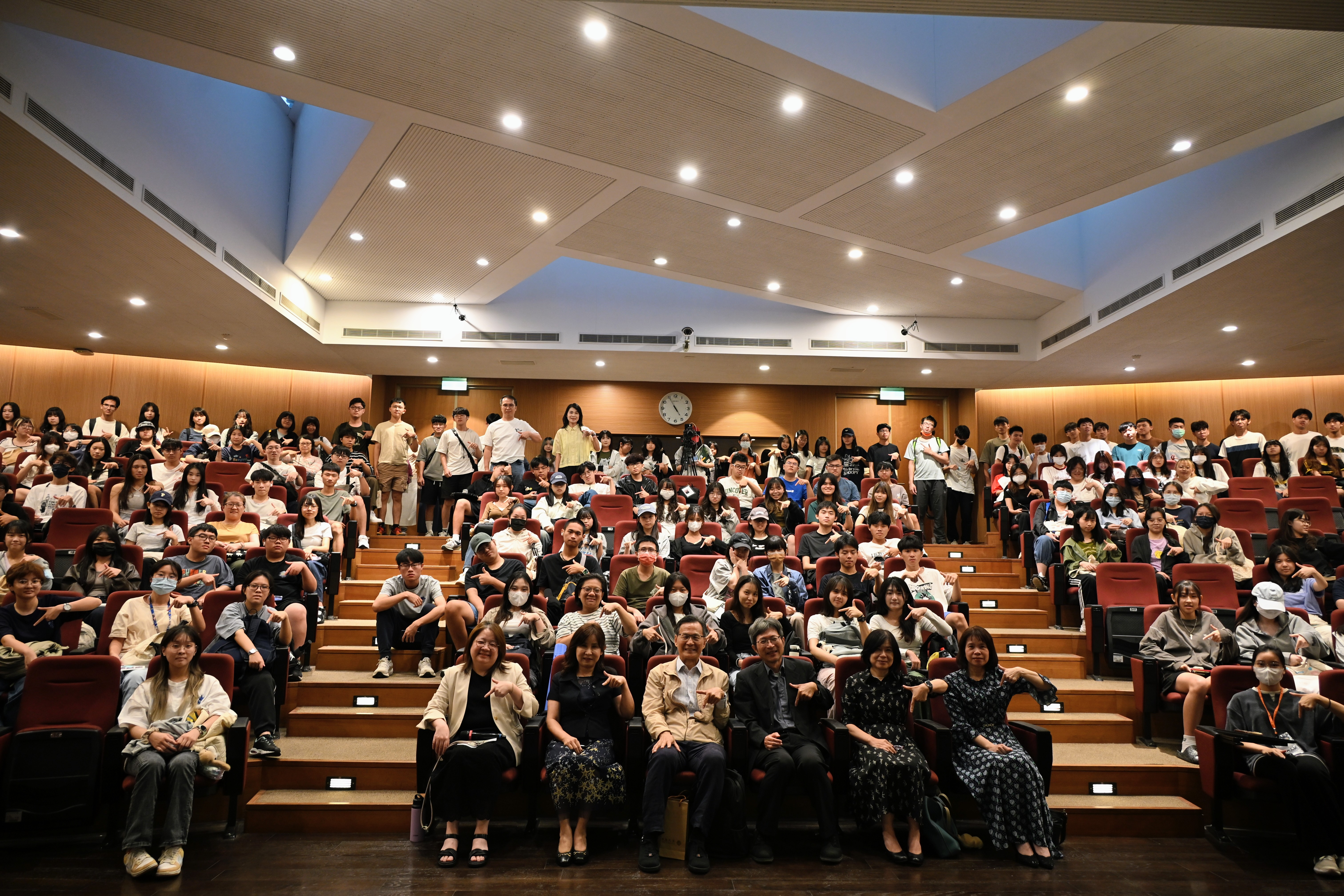From October 14 to 16, Chung Yuan Christian University’s Center for General Education and Alumni Office jointly hosted the “Think Tank Week”, featuring three lectures that gathered business and industry leaders to discuss topics from SME sustainability transformation and Japanese corporate innovation to Taiwan’s energy transition trends.
Marking CYCU’s 70th anniversary, the event encouraged faculty and students to strengthen holistic competencies in response to the global net-zero challenge. The first lecture, held at 3:10 p.m. on October 14 in the Hsiu-Te Hall of the Chang Ching-Yu Memorial Library, featured Mr. Chen Wan-Lai, Chairman of Chenyue Precision Slide Co., who spoke on “The Road to Sustainable Upgrading for SMEs—Breaking Through in the Carbon-Neutral Era.”
He emphasized that the EU’s CBAM carbon tariff and the RE100 initiative have become crucial thresholds in the global supply chain, urging enterprises to pursue carbon reduction through five key steps: inventory, reduction, substitution, offsetting, and verification.
Through multiple domestic and international case studies, he illustrated that sustainability is not a cost but the most reliable investment, enhancing brand value, reducing long-term expenses, and boosting competitiveness—stressing that “in this battle, there are no bystanders, only actors.”

At 10:10 a.m. on October 15, the second “Think Tank Week” lecture was held at Jui-Li Hall in CYCU’s Holistic Education Village, featuring Mr. Hiroshi Yokota, President of Tokuyama Corporation, invited by CYCU alumnus Mr. Lin Chien-Nan.
In his talk, “The Evolution of Tokuyama in Partnership with Taiwanese Partner Formosa Plastics,” Mr. Yokota traced the company’s century-long history since its founding in 1918, describing how Tokuyama transformed after the oil crisis from traditional chemical manufacturing to life sciences and electronic materials. He emphasized that “success often grows from adversity,” and highlighted the importance of cross-border partnerships, using the Tokuyama–Formosa Plastics collaboration as an example.
Encouraging students to prepare for the AI era, he urged them to integrate technical expertise with humanistic thinking, nurturing innovative and globally minded professionals with both depth and creativity.

The final lecture of CYCU’s “Think Tank Week” took place at 3:10 p.m. on October 16 in Hsiu-Te Hall, featuring Mr. Huang Chung-Chiu, former Chairman of Taipower, who delivered a talk titled “Sustainable Energy: The Force that Transforms Life and Industry.” He analyzed Taiwan’s energy structure and global decarbonization trends, stressing that energy transition must balance economic efficiency, energy security, and environmental protection.
Mr. Huang introduced emerging technologies such as CCUS (Carbon Capture, Utilization and Storage), hydrogen energy, and Small Modular Reactors (SMR), advocating for energy storage, time-of-use pricing, and demand response systems as smarter alternatives to building new power plants.
Quoting Ernest Hemingway’s words—“Gradually, then suddenly”—he reminded the audience that if society delays action, the energy crisis will arrive abruptly.

The three lectures offered rich insights and drew enthusiastic participation from faculty, students, and alumni. During the discussions, attendees actively exchanged views on corporate net-zero strategies, AI applications in energy forecasting, and other key sustainability topics, creating a vibrant atmosphere of learning and dialogue.
The Center for General Education noted that “Think Tank Week” embodies CYCU’s spirit of engaging with contemporary issues and integrating interdisciplinary knowledge. The Alumni Office added that CYCU alumni worldwide continue to support their alma mater through action, bridging industry and academia.
Celebrating its 70th anniversary, CYCU aims to carry forward the “Think Tank Week” spirit—integrating University Social Responsibility (USR) and industry collaboration to cultivate globally minded, sustainability-driven professionals.





自臺大教授謝銘倫(左)手中接任理事長。.jpg)





